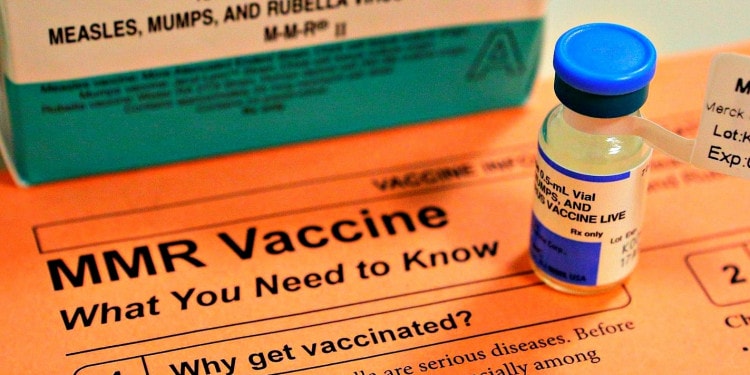Two different health-related American “rebellions” signal far-reaching consequences which will make it much harder to “put Humpty-Dumpty back together again” unless actions are taken soon. One is global, the other domestic, and we shall look at them more closely in turn.
The first is the global rebellion by world governments to resist U.S. pressure to have it determine the fate of the WHO.
The Trump Administration’s attack on the world’s only global health agency failed because many countries could no longer believe in U.S. leadership with respect to public health, a result of three years of declining attention, budget reductions for overseas programs, or threats to do so.
In May 2020 the 73rd World Health Assembly proved to be a pivotal moment, one in which the Europeans, People’s Republic of China, low and middle-income countries approved a resolution to investigate the COVID-19 pandemic without attributing blame to either China or the WHO.
The language of that resolution, in part, is as follows (paragraph 9, points 9 and 10):
to ensure that the Secretariat is adequately resourced to support the Member States in granting the regulatory approvals needed to enable timely and adequate COVID-19 countermeasures;
to initiate, at the earliest appropriate moment, and in consultation with Member States a stepwise process of impartial, independent and comprehensive evaluation, including using existing mechanisms, as appropriate, to review experience gained and lessons learned from the WHO-coordinated international health response to COVID-19 – including (i) the effectiveness of the mechanisms at WHO’s disposal; (ii) the functioning of the International Health Regulations (2005) and the status of implementation of the relevant recommendations of previous IHR Review Committees; (iii) WHO’s contribution to United Nations-wide efforts; and (iv) the actions of WHO and their timelines pertaining to the COVID-19 pandemic – and to make recommendations to improve capacity for global pandemic prevention, preparedness, and response, including through strengthening, as appropriate, the WHO Health Emergencies Programme.
The United States disassociated itself from the resolution citing various reasons including its position on abortion and trade. What most recognized was that the core of that unhappiness was the resolution did not go far enough in reforming the institution. The United States statement included the following:
“We must reform the WHO and supporting entities to be fully capable of fulfilling their core and crucial mission moving forward. We further appreciate the mandate given by the resolution to the WHO to investigate the origins of the virus, and we are confident that through this knowledge, researchers and medical practitioners around the world will be empowered in the pursuit of vaccines and other countermeasures.”
Reasonable language. But language which must be considered in light of President Trump’s May 18, 2020 letter to the WHO Director-General which concludes:
“That is why it is my duty, as President of the United States, to inform you that, if the World Health Organization does not commit to major substantive improvements within the next 30 days, I will make my temporary freeze of United States funding to the World Health Organization permanent and reconsider our membership in the organization. I cannot allow American taxpayer dollars to continue to finance an organization that, in its present state, is so clearly not serving America’s interests.”
While mid-June is soon upon us there is still time for the U.S. to accept progress in looking into COVID-19 and how the international community can do better in the future with respect to infectious disease outbreaks, prevention, preparedness, and response.
In short, a diplomatic off-ramp can be found, coupled with a more cooperative, comprehensive “we are all in this together” attitude. If not taken, it will lead to further “rebellions” by Western democracies and others, in health and perhaps other areas.
The “other” is the domestic health rebellion, the one within the U.S, and encouraged by national leadership.
The current U.S. Administration can fairly be characterized as distrusting seasoned experts who work in government. It regularly puts politics before science and effectively uses communications and messaging skills to encourage people to be “liberated”, ignore social distancing or wear masks, disregard evidence-based regulations.
As a package, the message from the Administration provides an easy rationale for those Americans who see public health rules as imposing uncomfortable discipline, as infringing on Constitutional rights, and therefore to be disregarded. Governors, mayors, and/or local leaders can all speak otherwise; but if the President says it’s all right, it is all right, whether he does so straight out or with a “wink and a nod”.
The rebellion is dangerous in more than one way. It gives license for people to send children to school without vaccination, ignore the police, or assume unfavorable court decisions will be overturned when individual liberty is at issue.
In short, what many are learning, from the very young to the disaffected old, is if you don’t like something, it’s okay to disobey authorities.
Both international and domestic rebellions represent “clear and present dangers” for Americans and all our immediate future and longer-term. We need to recognize where we are heading and reverse the course. And yes, “Yes, we can”.
Editor’s Note: The opinions expressed here by Impakter.com columnists are their own, not those of Impakter.com — In the Featured Photo: A vial of measles, mumps and rubella vaccine and an information sheet is seen at Boston Children’s Hospital in Boston, Massachusetts February 26, 2015. REUTERS/Brian Snyder/File Photo Source: Reuters article (18 May 2020): Researchers have documented a drop in child vaccination rates in Michigan since restrictions were imposed to slow the spread of the novel coronavirus, raising concern about outbreaks of other diseases such as measles, the U.S. Centers for Disease Control and Prevention said in a report on Monday.









